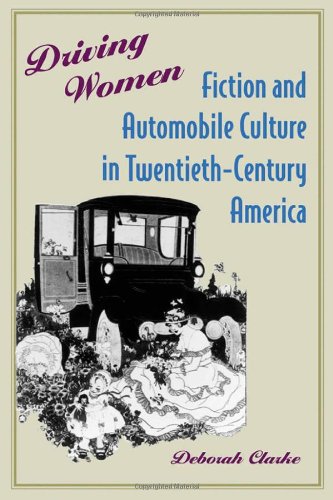

Most ebook files are in PDF format, so you can easily read them using various software such as Foxit Reader or directly on the Google Chrome browser.
Some ebook files are released by publishers in other formats such as .awz, .mobi, .epub, .fb2, etc. You may need to install specific software to read these formats on mobile/PC, such as Calibre.
Please read the tutorial at this link: https://ebookbell.com/faq
We offer FREE conversion to the popular formats you request; however, this may take some time. Therefore, right after payment, please email us, and we will try to provide the service as quickly as possible.
For some exceptional file formats or broken links (if any), please refrain from opening any disputes. Instead, email us first, and we will try to assist within a maximum of 6 hours.
EbookBell Team

5.0
38 reviewsOver the years, cars have helped to define the experiences and self-perceptions of women in complex and sometimes unexpected ways. When women take the wheel, family structure and public space are reconfigured and re-gendered, creating a context for a literary tradition in which the car has served as a substitute for, an escape from, and an extension of the home, as well as a surrogate mother, a financial safeguard, and a means of self-expression.
Driving Women examines the intersection of American fiction -- primarily but not exclusively by women -- and automobile culture. Deborah Clarke argues that issues critical to twentieth-century American society -- technology, mobility, domesticity, and agency -- are repeatedly articulated through women's relationships with cars. Women writers took surprisingly intense interest in car culture and its import for modern life, as the car, replete with material and symbolic meaning, recast literal and literary female power in the automotive age.
Clarke draws on a wide range of literary works, both canonical and popular, to document women's fascination with cars from many perspectives: historical, psychological, economic, ethnic. Authors discussed include Wharton, Stein, Faulkner, O'Connor, Morrison, Erdrich, Mason, Kingsolver, Lopez, Kadohata, Smiley, Senna, Viramontes, Allison, and Silko. By investigating how cars can function as female space, reflect female identity, and reshape female agency, this engaging study opens up new angles from which to approach fiction by and about women and traces new directions in the intersection of literature, technology, and gender.